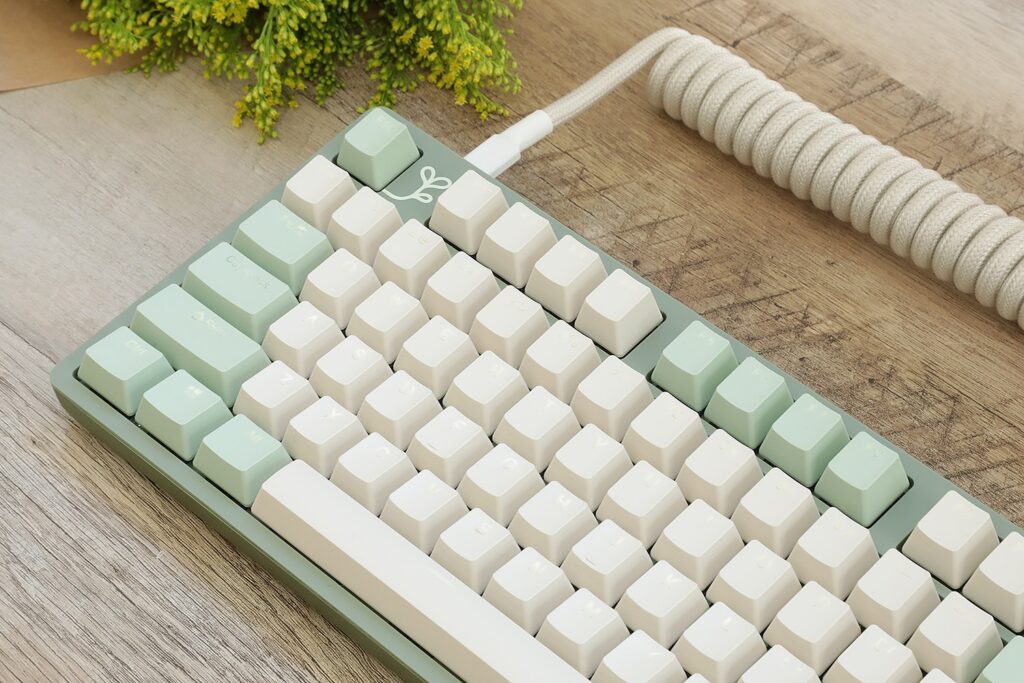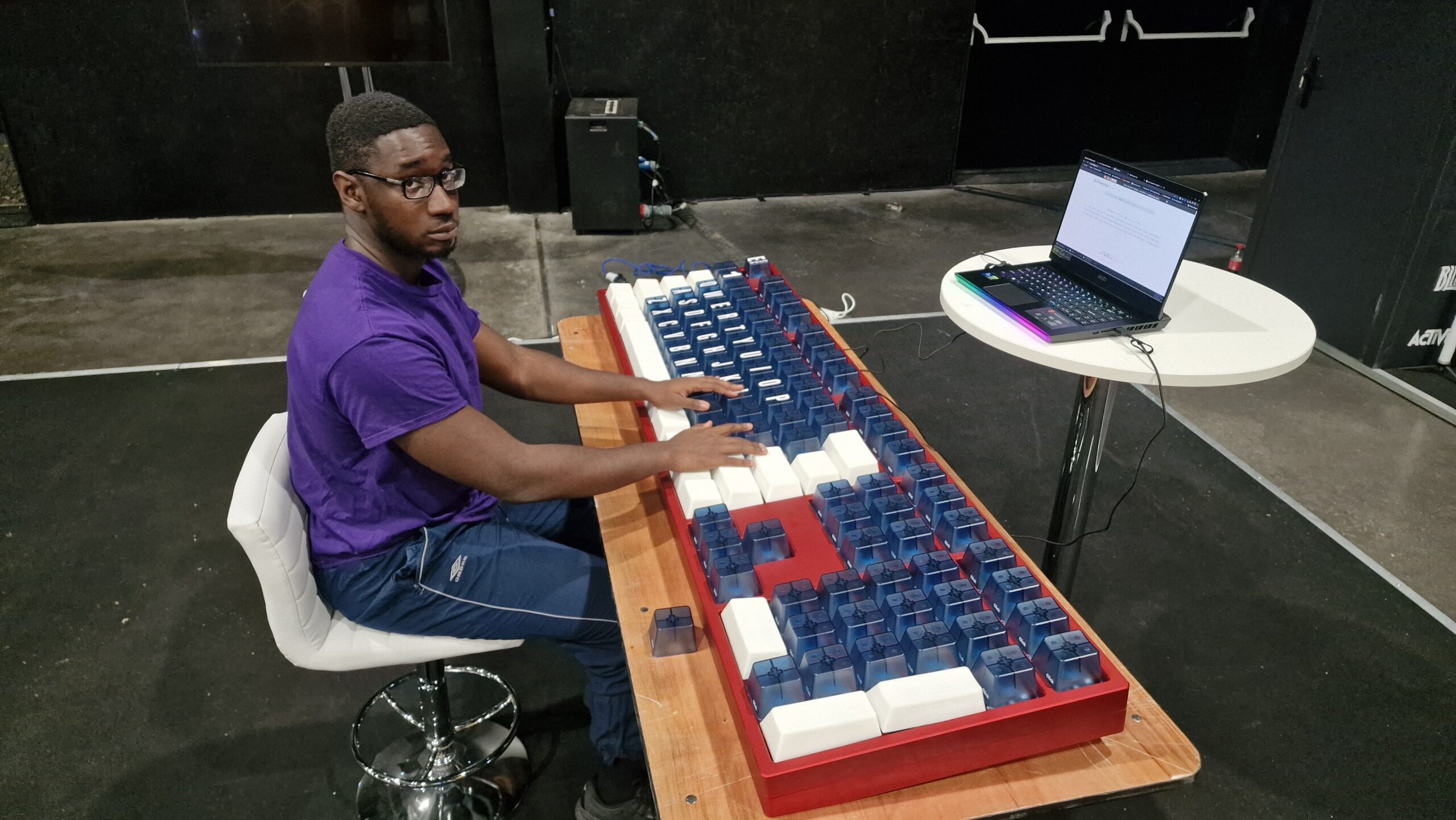Mechanical keyboards have gained popularity among typists in recent years due to their tactile feedback and customizable typing experience. But what exactly makes mechanical keyboards different from traditional membrane keyboards, and how can they improve typing speed and ergonomics? In this article, we’ll explore the science behind mechanical keyboard typing, the benefits they offer, and tips for optimizing your typing posture to prevent discomfort and injury.
What is a Mechanical Keyboard?
A mechanical keyboard is a type of keyboard that uses individual mechanical switches for each key instead of a membrane layer. These switches offer a tactile and audible feedback when a key is pressed, allowing the typist to know exactly when the keystroke has been registered. This feedback can lead to a more satisfying and accurate typing experience, especially for touch typists.
How Do Mechanical Keyboards Work?
Mechanical keyboards use individual switches for each key, which are activated when a key is pressed. Each switch consists of a spring and stem, which determine the amount of force required to press the key and the distance the key travels before registering a keystroke. The switch is designed to register a keystroke when the stem makes contact with a metal contact point, which sends an electrical signal to the computer.
The Benefits of Mechanical Keyboards for Typing Speed
Mechanical keyboards can improve typing speed due to their tactile feedback and customizable typing experience. The tactile feedback provides a clear indication that a key has been pressed, allowing the typist to move on to the next key more quickly. Additionally, many mechanical keyboards offer customizable keycaps and layouts, allowing the typist to optimize the keyboard for their specific typing style and preferences.

The Benefits of Mechanical Keyboards for Ergonomics
Mechanical keyboards can also improve ergonomics by reducing the strain on the fingers and wrists. The tactile feedback and higher actuation force required for each key can lead to a more natural and relaxed typing posture, reducing the risk of repetitive strain injuries such as carpal tunnel syndrome. Additionally, many mechanical keyboards offer ergonomic designs such as split layouts and adjustable tilt angles, allowing the typist to find a comfortable and healthy typing position.
The Impact of Typing Posture on Ergonomics
While mechanical keyboards can offer ergonomic benefits, the typing posture of the typist is also crucial for preventing discomfort and injury. Poor typing posture, such as slouching or holding the wrists at an awkward angle, can lead to pain and strain in the hands, wrists, and arms. It’s important to maintain a neutral posture with the shoulders relaxed, the elbows bent at a 90-degree angle, and the wrists in a straight and neutral position.
How to Optimize Your Typing Posture
To optimize your typing posture, consider the following tips:
- Use a keyboard tray or stand to ensure the keyboard is at the proper height and angle
- Use a wrist rest to support the wrists and maintain a neutral posture
- Keep the shoulders relaxed and the elbows bent at a 90-degree angle
- Keep the wrists in a straight and neutral position
- Take regular breaks and stretch the hands and wrists to prevent stiffness
Common Misconceptions About Mechanical Keyboards
There are several common misconceptions about mechanical keyboards that can lead to confusion for those new to this type of keyboard. One of the most prevalent is the belief that mechanical keyboards are louder than membrane keyboards. While it is true that some mechanical keyboards can produce a clicking sound, not all do, and there are even silent switches available for those who prefer a quieter typing experience.
Another misconception is that mechanical keyboards are only for gamers. While it is true that many gamers prefer mechanical keyboards for their fast and accurate keystrokes, they can benefit anyone who types frequently, including writers, programmers, and office workers.
Top Mechanical Keyboard Brands
There are many different brands of mechanical keyboards available, each with its own unique features and design. Some of the most popular brands include:
- Corsair
- Logitech
- Razer
- Das Keyboard
- Ducky
- Varmilo
- Keychron
When choosing a mechanical keyboard, it’s important to consider factors such as switch type, layout, and ergonomic design to find the best fit for your needs.
Maintenance Tips for Mechanical Keyboards
Like any piece of technology, mechanical keyboards require maintenance to keep them functioning at their best. Some tips for maintaining your mechanical keyboard include:
- Regularly cleaning the keyboard with a soft, dry cloth
- Using compressed air to remove any dust or debris from between the keys
- Keeping liquids away from the keyboard to prevent damage to the switches
- Lubricating the switches with a silicone-based lubricant to improve their longevity and feel
Conclusion
Mechanical keyboards offer a customizable and ergonomic typing experience that can benefit anyone who types frequently. By understanding the science behind mechanical keyboard typing and optimizing your typing posture, you can prevent discomfort and injury while improving your speed and accuracy.
FAQs
Q: Are mechanical keyboards better for gaming? A: Many gamers prefer mechanical keyboards because of their tactile feedback, faster response times, and durability.
Q: Can I customize the keycaps on my mechanical keyboard? A: Yes, most mechanical keyboards have removable keycaps that can be easily replaced with custom keycaps.
Q: Do mechanical keyboards require more force to type on than membrane keyboards? A: It depends on the specific switch type, but generally mechanical keyboards require less force to type on than membrane keyboards.
Q: How can I tell which switch type is best for me? A: You can research the different types of switches and their characteristics, try out keyboards with different switch types, or use online switch testers to determine which switch type suits your typing style.
Q: Can I use a wrist rest with my mechanical keyboard? A: Yes, many mechanical keyboards have detachable wrist rests, or you can purchase a separate wrist rest that is compatible with your keyboard.

